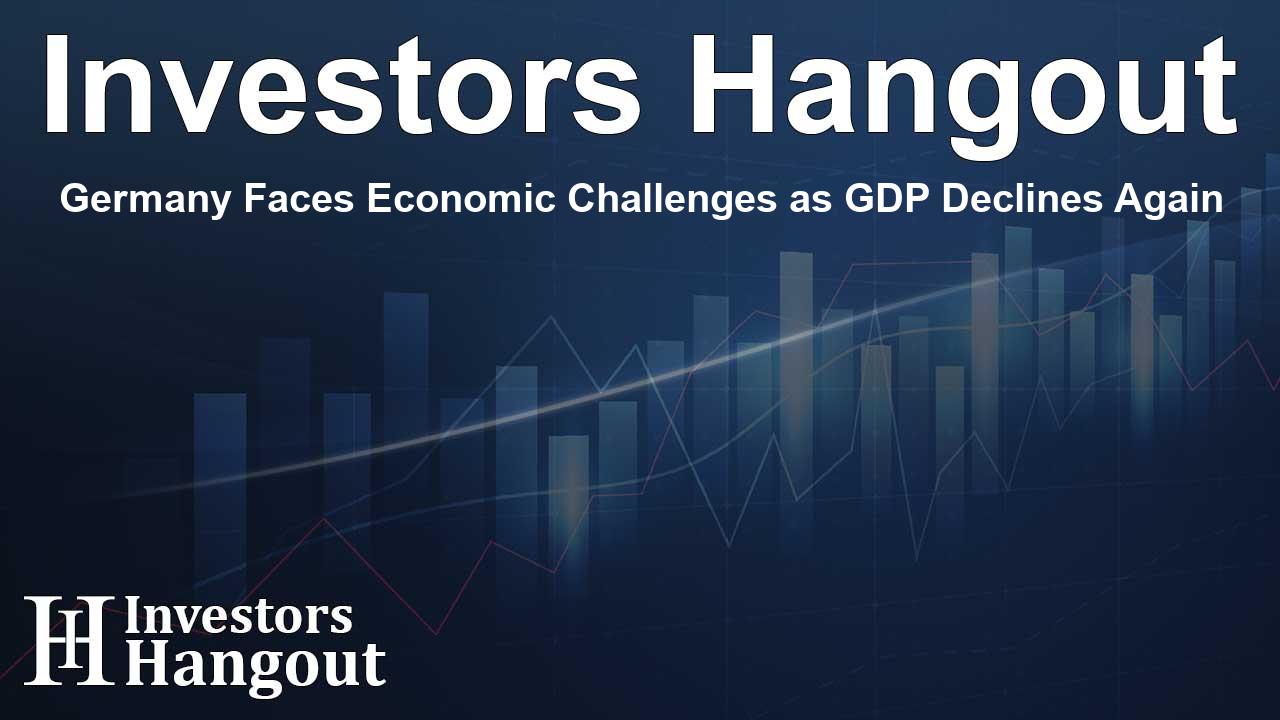Germany Faces Economic Challenges as GDP Declines Again

Germany's Economic Performance in 2024
The German economy faced significant challenges in 2024, contracting for the second year in a row. This marked Germany as the weakest performer among its eurozone counterparts, raising concerns about the overall health of the country's economic landscape.
Economic Contraction Statistics
According to the Federal Statistics Office, Germany experienced a GDP contraction of 0.2% in 2024. This followed a drop of 0.1% in the final quarter of the previous year. Analysts had anticipated a full-year decline of 0.2%, which confirmed existing worries about the economic outlook.
Impact of Export Declines
As a nation heavily reliant on exports, Germany's economy has been adversely affected by a decrease in global demand and heightened competition, particularly from Chinese manufacturers. In 2024, exports fell by 0.8% compared to the previous year, further complicating the economic situation.
Potential Recession on the Horizon
The continuing contraction suggests that Germany might be heading into a winter recession. A technical recession is typically defined by two consecutive quarters of negative growth. If the initial quarter of 2025 also shows a downturn, it could officially mark a recession period.
The Way Forward for Germany
To combat these economic hurdles, Germany may need to focus on strengthening domestic consumption and exploring new international markets. Innovations and investments in technology and sustainable practices could also play crucial roles in revitalizing the economy.
Conclusion
Germany's economic trajectory in 2024 raises significant concerns. The combination of shrinking exports and the potential for a winter recession demands immediate attention from policymakers and business leaders alike to stimulate growth and foster resilience in a challenging global landscape.
Frequently Asked Questions
What led to the contraction of Germany’s economy in 2024?
The contraction was primarily due to weak global demand and increasing competition from international markets, especially China.
What is a technical recession?
A technical recession is defined as two consecutive quarters of negative economic growth in GDP.
How did exports impact Germany’s economy?
Exports decreased by 0.8% in 2024, which significantly impacted the nation's export-driven economy.
What might happen if the first quarter of 2025 is also negative?
If the first quarter of 2025 shows a decline, Germany would officially enter a period of recession.
What strategies can Germany adopt to recover economically?
Focusing on boosting domestic demand, exploring new markets, and investing in technology could help Germany recover from its economic challenges.
About The Author
Contact Ryan Hughes privately here. Or send an email with ATTN: Ryan Hughes as the subject to contact@investorshangout.com.
About Investors Hangout
Investors Hangout is a leading online stock forum for financial discussion and learning, offering a wide range of free tools and resources. It draws in traders of all levels, who exchange market knowledge, investigate trading tactics, and keep an eye on industry developments in real time. Featuring financial articles, stock message boards, quotes, charts, company profiles, and live news updates. Through cooperative learning and a wealth of informational resources, it helps users from novices creating their first portfolios to experts honing their techniques. Join Investors Hangout today: https://investorshangout.com/
The content of this article is based on factual, publicly available information and does not represent legal, financial, or investment advice. Investors Hangout does not offer financial advice, and the author is not a licensed financial advisor. Consult a qualified advisor before making any financial or investment decisions based on this article. This article should not be considered advice to purchase, sell, or hold any securities or other investments. If any of the material provided here is inaccurate, please contact us for corrections.
